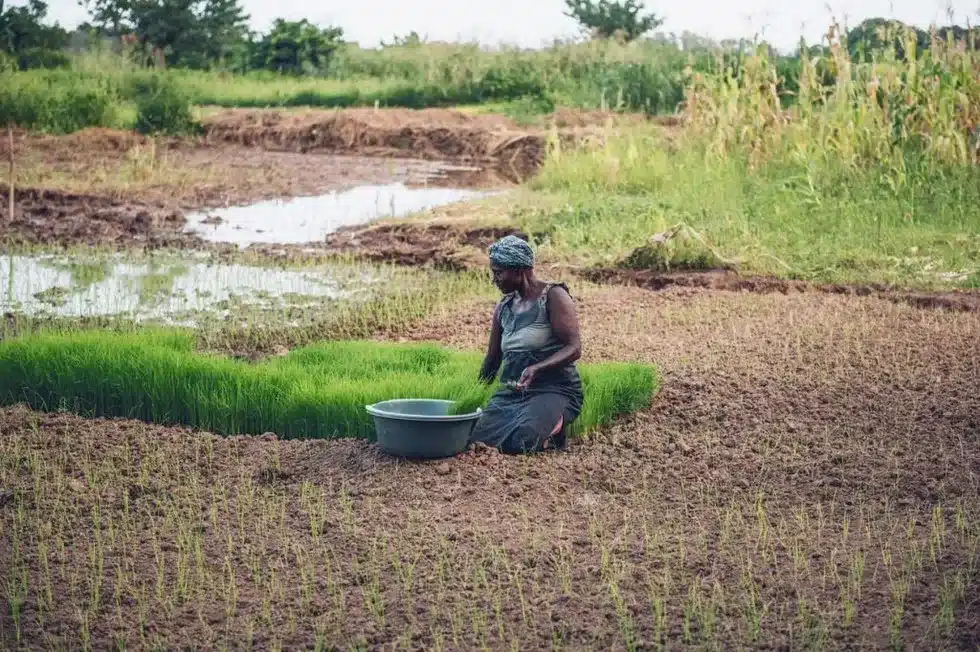About Rhamphicarpa fistulosa
- It isa facultative, parasitic weed that grows on rice which is also known as rice vampireweed.
- It also affects sorghum and maize and, potentially, other cereal crops.
- The weed can germinate and grow independently, but significantly increases its reproductive output when parasitizing a suitable host.
- It is not controlled by fertilisers.
- It is found in at least 35 countries in Africa, with 28 of them home to rainfed lowland rice areas.
- Countries with the highest estimated infestation rates were Gambia, Senegal, Burkina Faso, Togo and, to a lesser extent, Mauritania, Guinea-Bissau, Benin, Malawi and Tanzania.
What is a parasitic plant?
- It depends on other plants for part or all of their nutrition. They parasitize by making a xylem-to-xylem connection with the host plant using a specialized organ called haustorium.
- Through this connection the parasite extracts water, nutrients and metabolites and alters the plant growth regulators of the host, resulting in stunted growth and losses in reproductive output of the host plant.
- Obligate parasite, also known as holoparasite, is an organism which fails to complete or continue its life cycle without a host. The presence of the host organism is essential for an obligate parasite for reproduction and survival.
- The facultative parasite is a kind of parasite which is able to complete its life cycle even without a host organism. It can either live independently from the host or dependently with the host in contrast to an obligate parasite.
Q: What Is Mutualism?
It is an association between organisms of two different species in which each benefits. Mutualistic arrangements are most likely to develop between organisms with widely different living requirements.
Source: Vampireweed threatens rice production in Africa. What do we know about it?
Last updated on June, 2025
→ UPSC Notification 2025 was released on 22nd January 2025.
→ UPSC Prelims Result 2025 is out now for the CSE held on 25 May 2025.
→ UPSC Prelims Question Paper 2025 and Unofficial Prelims Answer Key 2025 are available now.
→ UPSC Calendar 2026 is released on 15th May, 2025.
→ The UPSC Vacancy 2025 were released 1129, out of which 979 were for UPSC CSE and remaining 150 are for UPSC IFoS.
→ UPSC Mains 2025 will be conducted on 22nd August 2025.
→ UPSC Prelims 2026 will be conducted on 24th May, 2026 & UPSC Mains 2026 will be conducted on 21st August 2026.
→ The UPSC Selection Process is of 3 stages-Prelims, Mains and Interview.
→ UPSC Result 2024 is released with latest UPSC Marksheet 2024. Check Now!
→ UPSC Toppers List 2024 is released now. Shakti Dubey is UPSC AIR 1 2024 Topper.
→ Also check Best IAS Coaching in Delhi






















